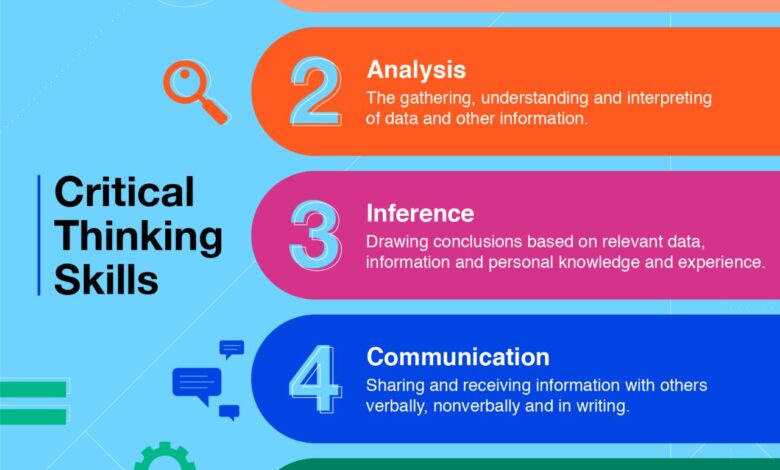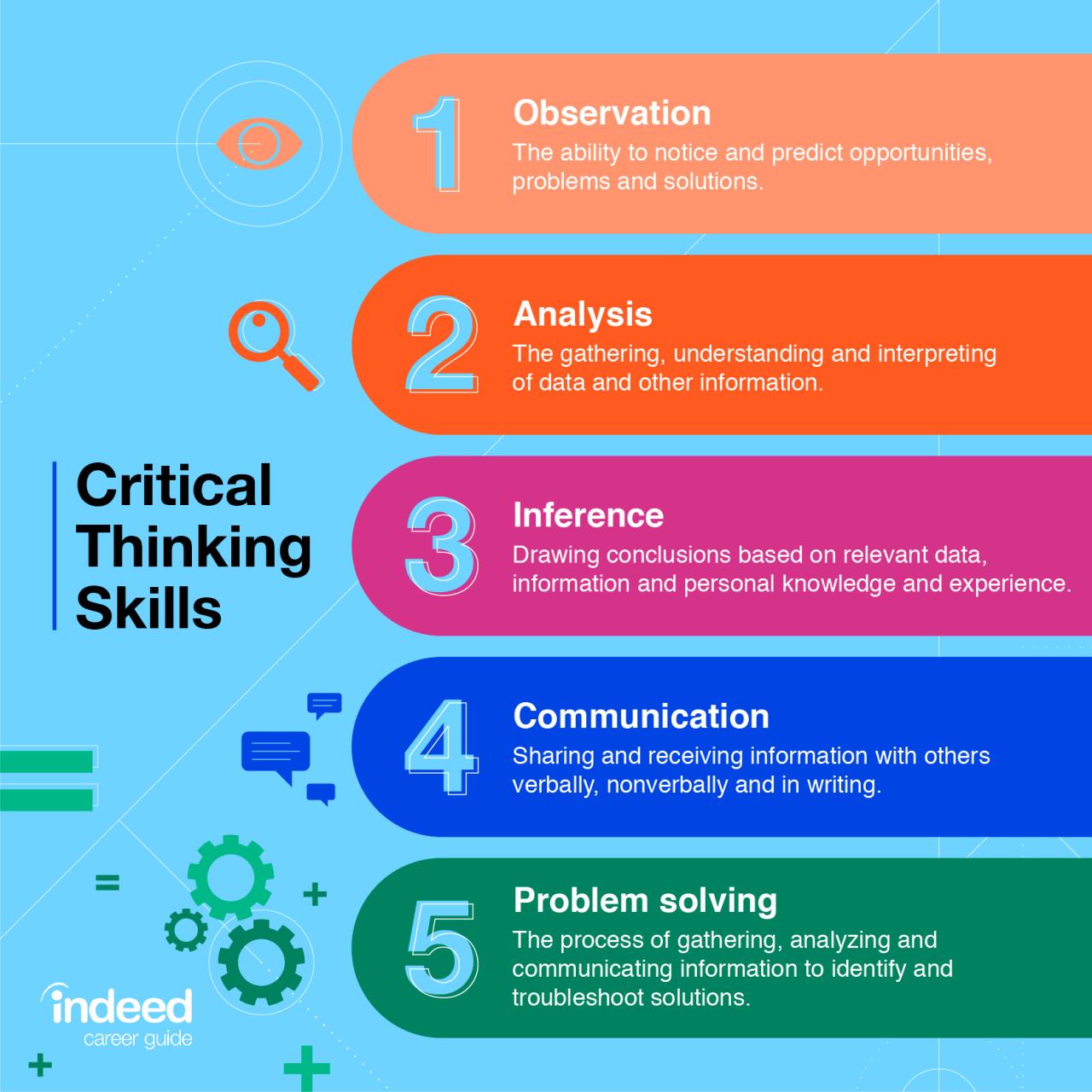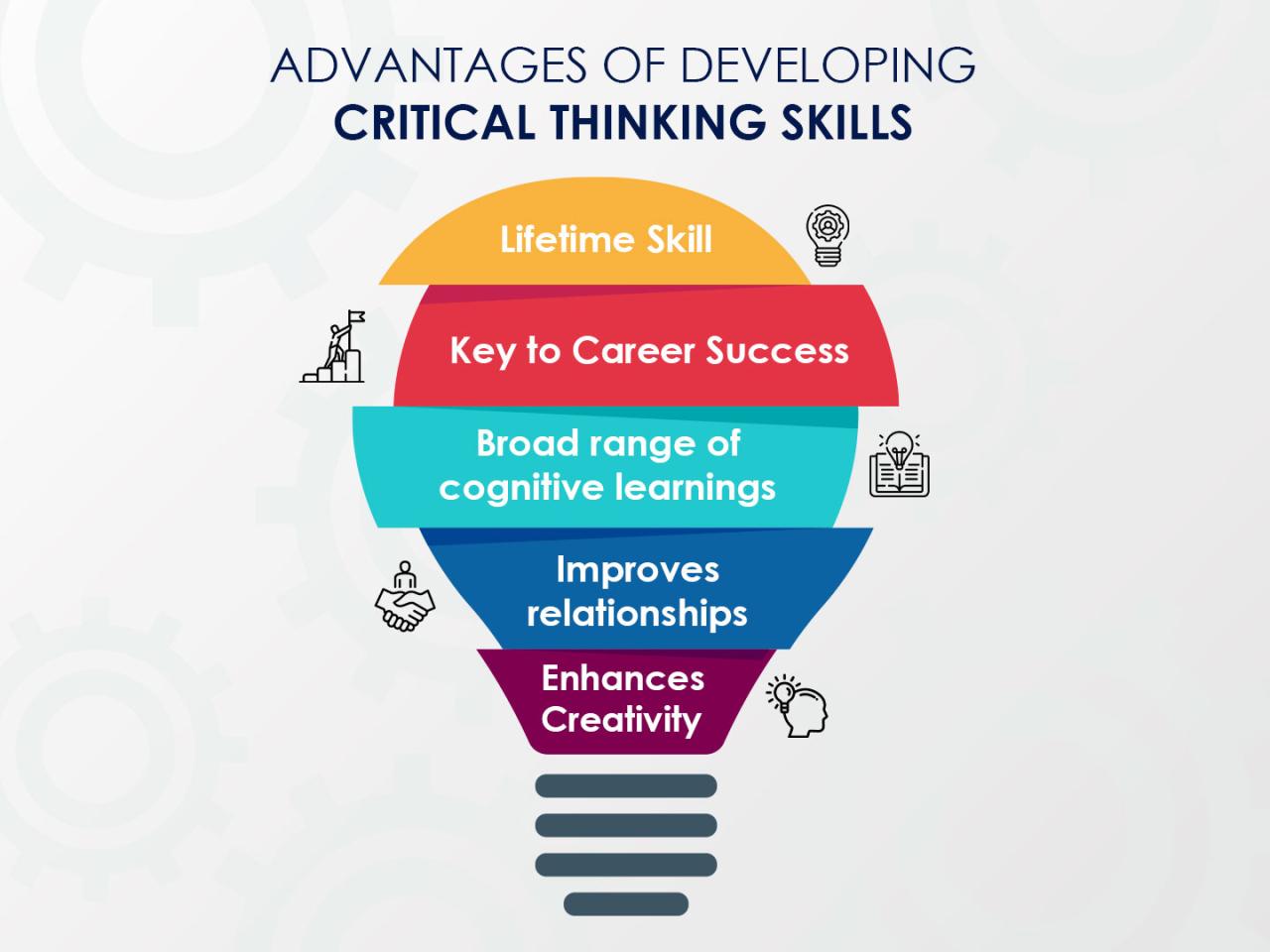
Why Everyone Should Think Like a Lawyer
Why everyone should think like a lawyer? It’s not about becoming a courtroom shark, but about adopting a powerful skillset applicable to every facet of life. This isn’t about memorizing legal jargon; it’s about sharpening your critical thinking, bolstering your persuasive abilities, and navigating the complexities of daily life with greater clarity and confidence. Think of it as upgrading your mental operating system – a powerful upgrade that improves your decision-making, problem-solving, and overall effectiveness.
This post dives into the core principles of legal thinking, showing how lawyers approach problems, build arguments, and communicate effectively. We’ll explore practical exercises and real-world examples to demonstrate how you can incorporate these techniques into your personal and professional life. Get ready to level up your thinking!
Understanding Different Perspectives: Why Everyone Should Think Like A Lawyer

Lawyers are masters of understanding different perspectives. Their success hinges on it. This ability isn’t just about winning cases; it’s about crafting effective strategies, navigating complex situations, and achieving the best possible outcomes for their clients. It’s a skill that transcends the courtroom and is incredibly valuable in all aspects of life.
Empathy and perspective-taking are fundamental to a lawyer’s interaction with clients. Empathy allows a lawyer to understand and share the feelings of their client, fostering trust and facilitating open communication. Perspective-taking enables the lawyer to see the situation from the client’s point of view, considering their unique circumstances, emotional state, and goals. This holistic understanding allows for more effective representation and tailored legal strategies.
Considering Multiple Viewpoints for Comprehensive Solutions, Why everyone should think like a lawyer
Considering multiple viewpoints is crucial for developing comprehensive solutions. Legal precedents often demonstrate the importance of this approach. For instance, in landmark Supreme Court cases likeBrown v. Board of Education*, the justices considered not only the legal arguments but also the societal implications of segregation, leading to a transformative decision that fundamentally altered American society. By examining the case from various perspectives – legal, social, ethical – the court arrived at a more complete and impactful ruling.
Similarly, in contract disputes, considering the perspectives of both parties helps to identify the core issues and potential areas of compromise, often leading to more efficient and mutually beneficial resolutions.
Comparison of Conflict Resolution Approaches
Different approaches to conflict resolution exist, each with its own strengths and weaknesses. The legal perspective often emphasizes structured processes and adherence to established rules and procedures. The following table illustrates some key differences:
| Approach | Description | Advantages | Disadvantages |
|---|---|---|---|
| Litigation | Formal legal process involving a court of law. | Provides a structured process for resolving disputes; enforceable judgments. | Can be expensive, time-consuming, and adversarial; may damage relationships. |
| Mediation | Neutral third party facilitates communication and negotiation between disputing parties. | Cost-effective, preserves relationships, allows for creative solutions. | Relies on parties’ willingness to cooperate; no guarantee of resolution. |
| Arbitration | Neutral third party hears evidence and makes a binding decision. | Faster and less expensive than litigation; more private. | Less opportunity for input from parties; decision may not be fully satisfactory to both sides. |
| Negotiation | Direct communication and compromise between disputing parties. | Simple, cost-effective, maintains control for parties involved. | Can be ineffective if parties are unwilling to compromise; power imbalances can hinder outcomes. |
Strategies for Active Listening and Understanding Opposing Arguments
Active listening and understanding opposing arguments are critical skills in legal practice, mirroring techniques frequently employed in courtroom settings. This involves not only hearing what the other side says but also understanding their underlying motivations, concerns, and perspectives. Techniques like paraphrasing, summarizing, and asking clarifying questions can help ensure accurate comprehension and demonstrate respect for the opposing viewpoint.
Effective lawyers use these strategies to identify weaknesses in their opponent’s arguments and to build stronger cases for their clients. They actively seek to understand the “why” behind the “what,” allowing them to anticipate objections and tailor their approach accordingly.
Ethical Considerations and Responsibility

Thinking like a lawyer isn’t just about mastering legal jargon and procedure; it’s fundamentally about understanding and applying ethical principles to every decision. This ethical framework, built on principles of fairness, integrity, and responsibility, isn’t confined to the courtroom; it’s a powerful tool for navigating the complexities of everyday life.Ethical considerations are the cornerstone of legal decision-making. Lawyers are bound by professional codes of conduct that dictate their actions, ensuring they act in the best interests of their clients while upholding the integrity of the legal system.
This translates to personal responsibility because the same principles – honesty, fairness, and accountability – that govern legal practice should guide our actions in all aspects of life.
The Importance of Considering Consequences
Legal liability is a direct consequence of actions. If someone commits a crime or breaches a contract, they face legal repercussions. Similarly, in our personal lives, understanding the potential consequences of our choices is crucial. Before making a decision, we should consider its impact on ourselves and others. For example, spreading misinformation online, even without malicious intent, can have significant consequences, damaging reputations and fostering distrust.
This proactive consideration of potential outcomes mirrors the lawyer’s meticulous assessment of risk and liability before advising a client. A lawyer wouldn’t advise a client to pursue a frivolous lawsuit without considering the potential for sanctions or reputational damage; we shouldn’t make impulsive decisions in our personal lives without considering similar consequences.
Comparing Ethical Dilemmas
While the stakes might be higher in legal contexts, the core ethical dilemmas faced by lawyers and those encountered in everyday life share common ground. Lawyers often grapple with conflicts of interest, balancing client confidentiality with the need to uphold the law. In everyday life, we might face similar conflicts, such as choosing between loyalty to a friend and upholding a moral principle.
Both scenarios require careful consideration of competing values and potential repercussions. Another parallel is the temptation to cut corners. A lawyer might face pressure to bend the rules to benefit a client; similarly, we might be tempted to take shortcuts in our personal or professional lives, potentially compromising ethical standards.
A Hypothetical Ethical Dilemma and its Resolution
Imagine a scenario: You witness a colleague plagiarizing work for a significant project. Reporting the colleague could damage their career, but failing to report it would compromise your own ethical standards and potentially harm your organization. A lawyer’s approach to this dilemma would involve a systematic analysis. First, they’d identify the ethical issues at stake – honesty, fairness, loyalty.
Then, they’d consider the relevant rules and regulations – company policies on plagiarism, professional codes of conduct. Finally, they’d weigh the potential consequences of different courses of action, considering the impact on all parties involved. This methodical approach, characteristic of legal reasoning, allows for a well-reasoned decision that prioritizes ethical principles while acknowledging the practical implications. In this case, reporting the plagiarism, while potentially difficult, aligns with principles of fairness and integrity, and ultimately protects the integrity of the organization.
So, why should
-everyone* think like a lawyer? Because adopting a lawyer’s analytical approach isn’t about winning court cases; it’s about winning at life. By honing your critical thinking, sharpening your communication, and understanding different perspectives, you equip yourself to make better decisions, build stronger arguments, and navigate the complexities of the world with greater confidence and clarity.
It’s about becoming a more effective, persuasive, and ultimately, successful version of yourself. Start thinking like a lawyer today – you might be surprised at the results!
Thinking like a lawyer isn’t just for courtroom dramas; it’s about critical thinking and dissecting information. For example, understanding the recent surge in grocery prices, as highlighted in this article about how grocery store inflation soars at fastest pace in 43 years , requires analyzing the causes and potential consequences. This analytical approach, honed by a legal mindset, empowers us to navigate complex situations like rising inflation more effectively.
Ultimately, a lawyer’s way of thinking equips us to be more informed and engaged citizens.
Thinking like a lawyer hones your ability to dissect arguments and identify underlying assumptions – a crucial skill in navigating the complexities of the world. Consider, for instance, the intense political maneuvering evident in Volodymyr Zelenskyy’s recent US visit, as highlighted in this insightful article: the desperation apparent in volodymyr zelenskys american visit. Analyzing his requests through a legal lens reveals the strategic calculations behind each plea, demonstrating how a lawyer’s mindset can illuminate even the most emotionally charged situations.
Ultimately, adopting this analytical approach empowers us to make better decisions in all aspects of life.
Thinking like a lawyer – dissecting arguments, identifying biases, and building strong cases – is a valuable life skill. Consider the decisions made by someone like jerome powell chairman of the federal reserve ; his pronouncements impact millions. Understanding the logic behind his choices, the potential counterarguments, and the overall strategy demonstrates the power of legal thinking in navigating complex situations.
Ultimately, honing this skill empowers you to make more informed decisions in every aspect of your life.

